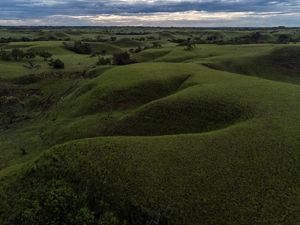
Sabanas del Manacacías The tropical savannas of Manacacías and Orinoquia provide an important link between the Andes and the Amazon. © Federico Ríos/TNC
Iconic Orinoquia Webinar
View our recent webinar on the climate connections between Colombia and Wisconsin.
Watch the VideoFor more than 30 years, The Nature Conservancy has worked with public and private partners in Colombia to protect the lands and waters that host close to 10% of the planet’s biodiversity. Rich in plant and animal life, Colombia ranks first in the world in bird and orchid species diversity and second in plant, butterfly, freshwater fish and amphibian diversity.
In 2023, TNC in Wisconsin brought our work close to home, launching a formal partnership with TNC’s Colombia program to accelerate conservation action in the Orinoquia region. And, a year into the partnership, much progress has been made.
Most notably, TNC and other partners helped establish a new 168,476-acre national park, Parque Nacional Natural Serranía de Manacacías, in the Orinoquia region—an area that connects the Andes with the vast Amazon Biome to the south. Home to many of the region’s iconic species like jaguars, tapirs, armadillos, anteaters and caiman, as well as over 460 bird species, the park is a biodiversity hotspot and a huge win for global conservation. TNC, through generous donors, was a major funder of the effort, and TNC staff assisted with land acquisitions, government relations, biodiversity reviews and other core functions that were instrumental in establishing the park.
The success of Manacacías has been primarily due to the close partnerships formed between federal agencies, non-profits and private ranchers over the past decade and a half—preliminary project planning began as early as 2010 with TNC formally joining the effort seven years ago—and like many conservation projects across the globe, it has required a disruption of historic systems and a lot of trust-building. But despite the many challenges, the project’s partners are seeing their hard work pay dividends now that the park is established.
“The work hasn’t always been easy, and a project like this requires sacrifice, collaboration and an understanding of the relationships between humans and the environment,” says TNC Colombia Director Claudia Vásquez. “It has been remarkable to see how people can come together around an effort like this—one that preserves and protects such a critical link in the biodiversity chain across the region. It’s such an exciting moment in conservation!"
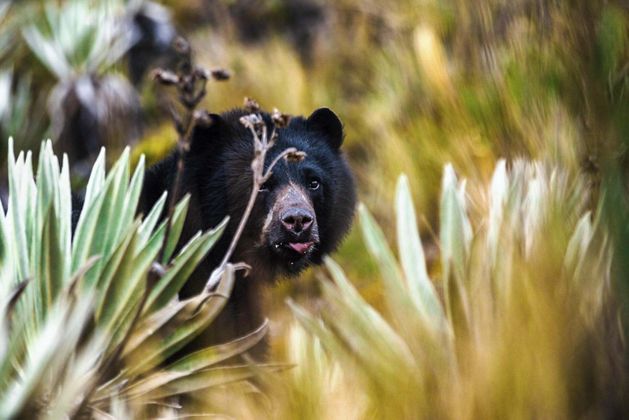
We Can’t Save Nature Without You
Sign up to receive monthly conservation news and updates from Wisconsin.
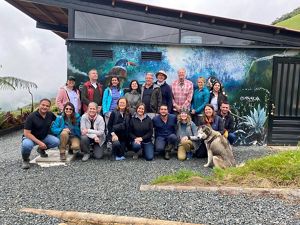
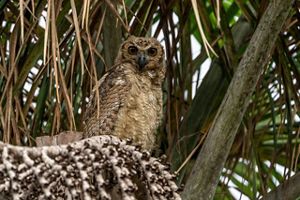
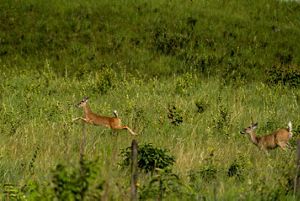
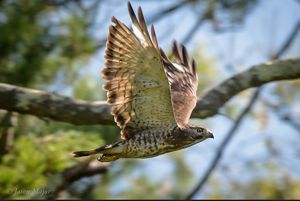
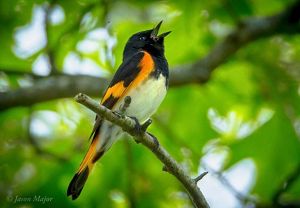
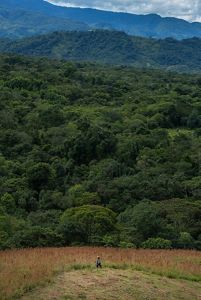
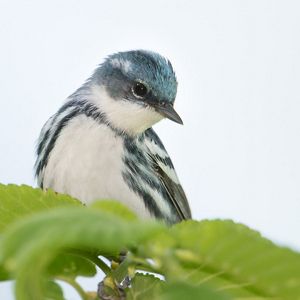
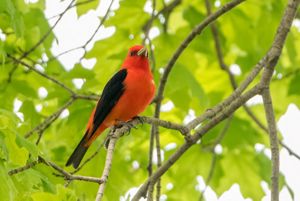
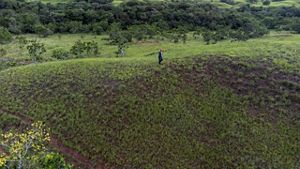
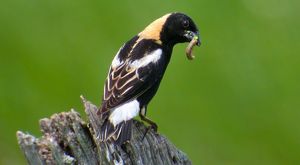

Forming a Partnership: Following a trip to Colombia in 2023, TNC’s Wisconsin and Colombia programs have committed to working together to advance conservation goals in both places. © TNC

Great Horned Owl: Found in both Wisconsin and Colombia, great horned owls are not migratory; they're year-round residents in both locations. © Federico Ríos/TNC

Abundant Wildlife: Manacacías is home to 179 mammal species, including white-tailed deer. © Federico Ríos/TNC

Broad-winged Hawk : Each spring and fall, thousands of broad-winged hawks migrate between Colombia and Wisconsin for their breeding season. © Jason Major

American Redstart: While in Wisconsin during the summer, American redstarts can be found in woodlands near water. © Jason Major

From Forest to Field: he Nature Conservancy is helping Colombian farmers implement sustainable ranching practices. © Juan Arredondo

Cerulean Warbler: A resident of the upper canopy of the forest, cerulean warblers rely on Wisconsin hardwood forests to breed and raise their young each summer. © Matt Williams

Scarlet Tanager: These colorful migrators are one of the more than 50 bird species shared between Colombia and Wisconsin. © Layton F. Rikkers

Building Connections: People and nature thrive together in the Manacacías region. © Federico Ríos

Bobolink: The bobolink is one of the world's most impressive songbird migrants, traveling some 12,500 miles to and from southern South America every year. © Mike McDowell
TNC in Action
Apart from assisting in setting up the park, TNC is offering training and technical assistance programs to help residents in the buffer area (the area just outside the park boundaries) develop new economic opportunities for their families and communities. TNC is also encouraging the adoption of sustainable, regenerative production practices. Since most of the region's recent economic activities have relied heavily on water and resource-intensive practices such as palm oil and eucalyptus production, as well as cattle ranching, it's important for local communities to find new, diverse, and sustainable paths to economic stability. This could mean providing employment opportunities in the park as rangers and guides for some residents, while others may use their existing skills to start new businesses and create extra sources of income.
“We are excited to be part of this great experiment in the region that is offering an alternative path forward for local ranchers, their communities and their livelihoods. By incentivizing nature-first revenue streams like beekeeping, intentional tourism and managed, rotational livestock operations, we are proving that sustainability can be a profitable path forward,” suggests Vásquez.
Other TNC-supported efforts in the buffer area are focused on regenerative agriculture practices and supporting projects like reintroducing local cattle breeds to the production system (the cattle are known for their resilience in the local environment), reducing fire risk, minimizing the use of chemicals and implementing livestock water supply systems to ensure sustainable management of natural resources.
There are so many reasons to celebrate in the Manacacías region, and TNC is committed to working with local communities to support durable, long-term conservation outcomes for today and tomorrow.




Supporting Orinoquia and Manacacías
To help inspire others to join TNC's efforts in Colombia, a group of Wisconsin trustees and friends of The Nature Conservancy pledged $50,000 to create The Orinoquia Match Fund. Gifts between $1,000 and $10,000 designated for the Wisconsin–Colombia partnership will be matched dollar-for-dollar from the fund until the match is complete.
Of the over 50 bird species shared between Colombia and Wisconsin, more than 30 depend on the forests and grassland savannas of the Orinoquia during winter migration. All gifts designated for the Wisconsin–Colombia partnership will be used in the 500,000-acre buffer area surrounding the new Manacacías National Park to fund activities like bird surveys, field days and workshops with private landowners to introduce conservation practices that support biodiversity.
Contributions will also support two demonstration farms that serve as living examples of how people and nature can thrive together. We often share ways that our members can take action for land and water in Wisconsin. The Orinoquia Match Fund presents a unique opportunity to make a difference for a global landscape that also benefits many of the birds we know and love in our own backyards. For more information, or to make a gift to the Wisconsin–Colombia partnership, please contact Director of Development, Katy Coelho at (608) 316-6410 or kcoelho@tnc.org.



